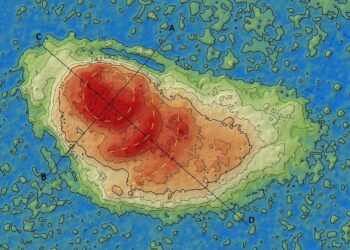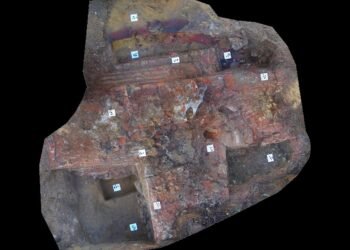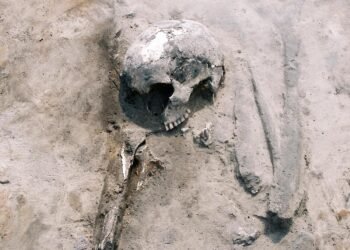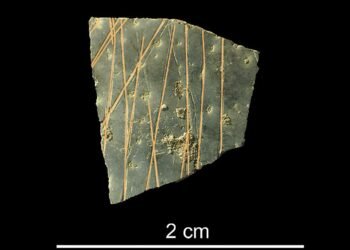A marble head of Zeus has been unearthed in the ancient city of Aphrodisias, located in the Geyre neighborhood of Karacasu district in Aydın province, western Turkey.
The announcement was made by Turkey’s Minister of Culture and Tourism, Mehmet Nuri Ersoy, who described the find as “a unique discovery in Aphrodisias.”
The colossal marble head, which stands 66 centimeters tall, was found inverted near the surface, approximately 50 meters west of the Temple of Aphrodite.
Aphrodisias’ta benzersiz bir keşif: Kolosal Zeus Başı!💫
Yüzyıllar sonra gün ışığıyla yeniden buluşan mermer baş, Yunan mitolojisinde en güçlü ve önemli tanrı olan Zeus’un ihtişamını sergiliyor.
Aphrodite Tapınağı’nın 50 metre batısında bulunan bu önemli eser, saç ve sakaldaki… pic.twitter.com/Re0C1JOwS7
— Mehmet Nuri Ersoy (@MehmetNuriErsoy) July 30, 2024
It is believed to have been part of an architectural console or similar structure. Made from a single block of medium-grained Aphrodisias marble, the head dates back to the 2nd-3rd century CE.
Minister Ersoy stated: “The marble head, which has met daylight again after centuries, showcases the magnificence of Zeus, the most powerful and important god in Greek mythology.”
He also noted that the artifact’s sophisticated drill work on the hair and beard is indicative of the high-level sculpting techniques employed by Aphrodisian artists. “Our efforts to carry Anatolia’s rich past to future generations will continue without slowing down,” Ersoy added.
The Ministry of Culture explained: “The delicate technique borrowed from portrait sculpture is used here to give Zeus’s classical image a more realistic, almost breathing contemporary effect.” The head underwent preliminary cleaning and conservation to remove heavily compacted soil deposits.
Aphrodisias, known as one of the most important art centers of the Roman period, was famous for its marble quarries and the skilled sculptors who worked there.
The city’s sculptors were renowned across the Roman Empire for their virtuoso portrait sculptures and statues of gods, particularly in the Hellenistic style. The proximity of the marble quarries contributed significantly to the city’s prominence as a hub for marble sculpture production.























